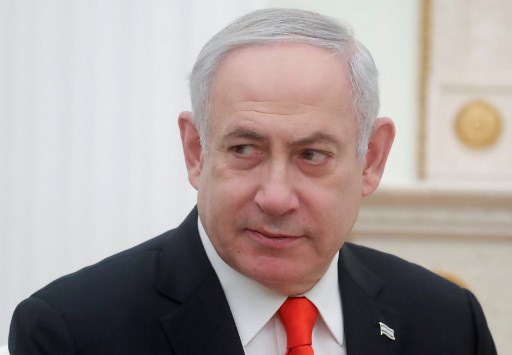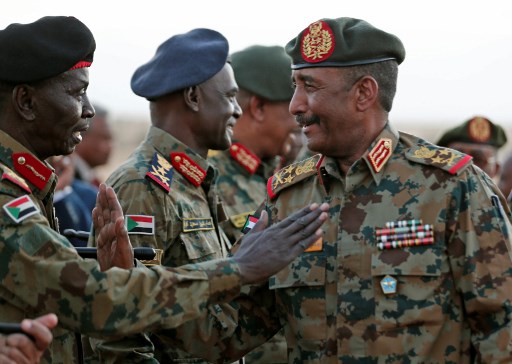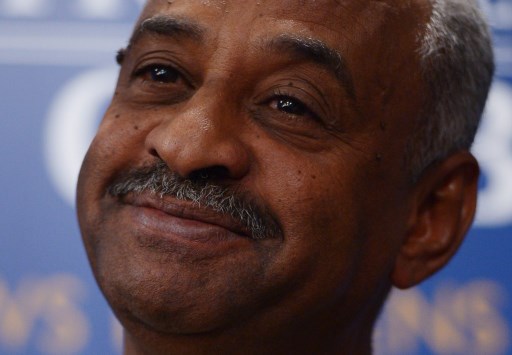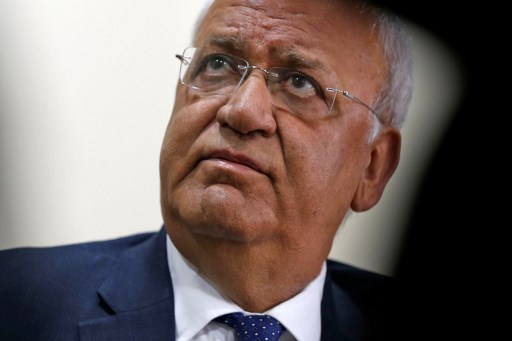
by Guillaume Lavallee with Michael O’Hagan in Entebbe
Agence France-Presse
JERUSALEM, Undefined (AFP) — Israeli Prime Minister Benjamin Netanyahu met Sudan’s leader Monday to discuss normalizing ties, his office said, a potentially landmark step that caught Khartoum by surprise and was denounced by the Palestinians.
Netanyahu’s office said he met Abdel Fattah al-Burhan, chairman of the ruling sovereign council in fast-changing Sudan, in the Ugandan city of Entebbe.

Israel remains technically at war with Sudan, which for years supported hardline Islamist forces. Sudan would become only the third Arab state to recognize the Jewish state.
“History,” Netanyahu said in a tweet announcing the meeting.
Sudan’s sovereign council is a transitional body of military officials and civilians that is headed by Burhan, an army general.
It was created as part of a power-sharing agreement with a civilian prime minister, economist Abdalla Hamdok, following the overthrow of longtime dictator Omar al-Bashir last year.
The statement from Netanyahu’s office said the two men had “agreed to start cooperation leading to normalization of the relationship between the two countries”.
It added that the prime minister believed “Sudan is headed in a new positive direction” and that he had expressed this view to US Secretary of State Mike Pompeo.
“Burhan is eager to help his country modernize by taking it out of isolation and putting it on the world’s map,” it said.
Encouraging US to help Sudan
Sudanese government spokesman Faisal Mohamed Salih said the cabinet only learned of the talks through the media.

“We, the members of the cabinet, were not notified or consulted about this meeting. We are waiting for the chief of the sovereign council to return and give clarification about this,” Salih said in a statement.
Pompeo also spoke to Burhan by telephone and “thanked” the general for his “leadership in normalizing ties with Israel,” the State Department said.
It said that Pompeo invited Burhan to visit Washington and voiced willingness to work towards “a stronger, healthier US-Sudan bilateral relationship,” State Department spokeswoman Morgan Ortagus said.
The United States still classifies Sudan a state sponsor of terrorism, a legacy from the rule of Bashir who in the 1990s welcomed Osama bin Laden.
The persistent legal status severely impedes foreign investors, who fear incurring the wrath of Washington if they do business in Sudan.
Despite praising the direction of Sudan, President Donald Trump’s administration on Friday imposed new restrictions on visas for citizens of Sudan and five other countries as part of his hardline stance on immigration.
‘Stab in the back’
The Palestinian leadership denounced the Sudanese general’s talks with Netanyahu.
“This meeting is a stab in the back of the Palestinian people… at a time when the administration of President Donald Trump and Israeli Prime Minister Netanyahu are trying to liquidate the Palestinian cause,” Saeb Erekat, secretary general of the Palestine Liberation Organization, said in a statement carried on official news agency WAFA.

The Palestinians have been seeking a united front since Trump last week unveiled a Middle East plan widely seen as skewed towards Israel.
It gave the Jewish state the green light to annex settlements in the occupied West Bank, as well as the Jordan Valley, a key part of the territory Palestinians see as their future state.
Before Netanyahu’s meeting with Burhan, both the Arab League and the Organization of the Islamic Conference showed unity in denouncing the Trump plan.
Sudan under Bashir was part of the decades-long Arab boycott of Israel over the Jewish state’s treatment of the Palestinians.
In the wake of the 1967 war in which Israel captured Palestinian lands, Arab leaders met in the Sudanese capital Khartoum to announce what became known as the ‘three nos’ — no peace, recognition or negotiations with Israel.
Since then Egypt and Jordan have recognized Israel. But relations have also been easing between Israel and Gulf Arab states due to shared concern over Iran’s role in the region.
Netanyahu visited Oman in 2018 and he frequently says the boycott of his country is ending, despite no peace deal with the Palestinians.
Netanyahu also met Ugandan President Yoweri Museveni Monday and called for the opening of missions in each others’ countries.
“You open an embassy in Jerusalem, I’ll open an embassy in Kampala,” he said.
Israel considers all of Jerusalem its capital while the Palestinians see the eastern part of the holy city as the capital of their future state.
Traditionally, most diplomatic missions in Israel have been in Tel Aviv as countries maintained a neutral stance over the status of Jerusalem.
Trump, a close ally of Netanyahu, moved the US embassy to Jerusalem in May 2018 and has pressured other countries to follow suit.
In recent years, Israel has improved ties with African nations, following a difficult period when many post-independence African leaders sided with Israel’s Arab rivals and viewed with hostility Israel’s support for apartheid South Africa.
Israel now has diplomatic relations with 39 of 47 sub-Saharan African states.
© Agence France-Presse








